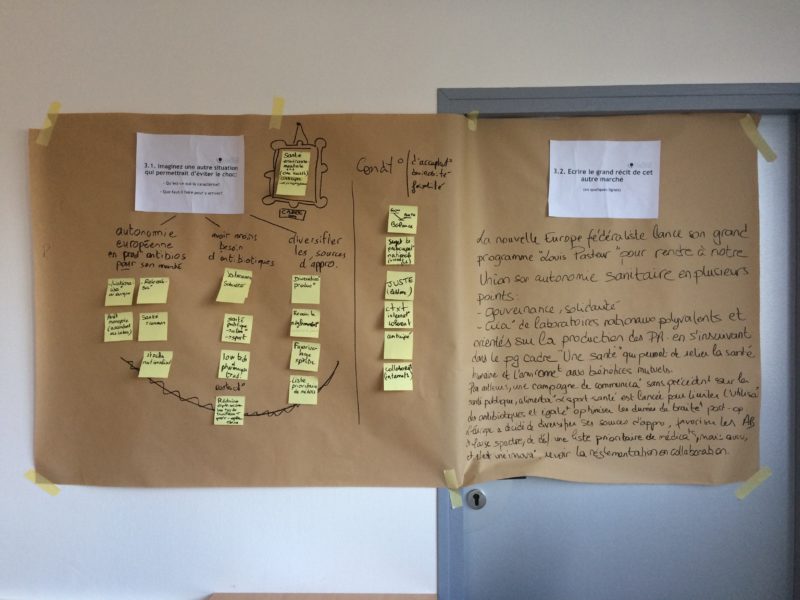On November 22, 2019, the Climate Adaptation Consulting (CAC) team led a workshop to facilitate collective intelligence during the “Risks of collapse and adaptations” seminar organized by EISTI (École Internationale des Sciences du Traitement de l’Information, in Cergy).
(https://eisti.fr/fr/article/le-module-risques-deffondrements-et-adaptations-ouvert-au-grand-public)
The pedagogic goal of this workshop was to reuse the acquired knowledge from the seminar. To achieve that goal, CAC designed an innovative exercise to develop storytelling of an existing system, explore its limits and identify the consequences of a plausible shock to it and then propose a new alternative storytelling.
The participants dealt with three challenging subjects:
- Sanitary security, for example, lack of hospital antibiotics
- Food security of territories, more and more threatened by climate and social change
- The smart future city model, for example, “Paris Smart City 2050.”
The workshop was organized as follows: the 30 participants were divided in 6 groups, 2 groups per subject, with a CAC facilitator and a subject expert. At the end of the workshop, participants were invited to share their findings and their storytelling.
Despite the diversity of subjects and shocks (for example, loss of a cargo of antibiotics destined to Europe, change of the Chinese policy in favor of its domestic market, long-lasting labor strike preventing supermarkets to replenish their inventory deliveries, electric outages paralyzing smart city, cyber-attacks on the smart city..), participants revealed the vulnerabilities of these three systems to several types of risks, including major risks to public health and civil security.
Regarding solutions, the relocation of antibiotics manufacturing appeared to be indispensable at the European level in order to avoid dependence on Asia for these strategic resources for public health. Since the food autonomy of cities is about 2%, local food networks and crops diversification of territories seemed to be indispensable to ensure cities’ food resilience. To be acceptable, the city of the future will have to focus on the well-being of its citizens and should not rely on big data or depend on computer and automated systems.
This collective intelligence exercise showed that although the participants were not experts in the chosen subjects, they were able to quickly appropriate storytelling, identify limitations and propose new solutions and new storytelling. Again, this exercise shows that collective intelligence is enriched by diversity and inclusion.
This post is also available in: Français

